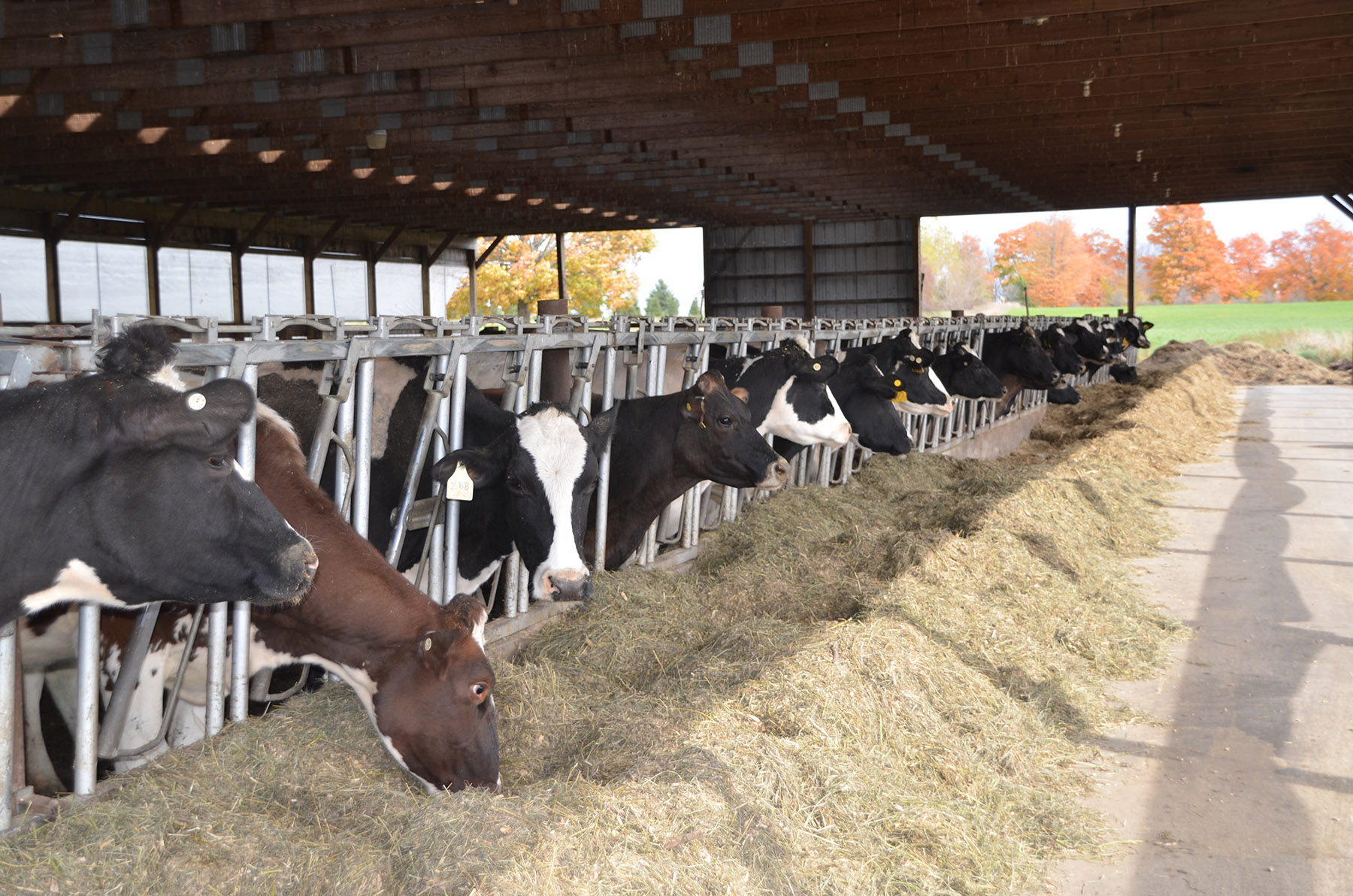 EAST LANSING, Mich. – The Michigan Alliance for Animal Agriculture (M-AAA) has received $3 million in new funding for research projects and infrastructure upgrades. With support from the Michigan Legislature and in partnership with animal agriculture industry organizations and Michigan State University, funding is included in the Michigan Department of Agriculture and Rural Development (MDARD) 2021 budget.
EAST LANSING, Mich. – The Michigan Alliance for Animal Agriculture (M-AAA) has received $3 million in new funding for research projects and infrastructure upgrades. With support from the Michigan Legislature and in partnership with animal agriculture industry organizations and Michigan State University, funding is included in the Michigan Department of Agriculture and Rural Development (MDARD) 2021 budget.
“Part of MDARD’s core mission is to protect public health, as well as the health of domestic animals, livestock and pets,” said MDARD Director Gary McDowell. “These grants are critical as we continue to move the needle on these key initiatives, while also providing the necessary research and infrastructure needed to make sound decisions, improve operations and ensure an efficient and sustainable agriculture, which everybody can get behind.”
Twenty-five new research and outreach projects are being supported with $2.28 million, and the remainder is being used for renovations to the MSU Swine Teaching and Research Center, a critical component to funded research.
Established in 2014, the M-AAA supports research and outreach on behalf of Michigan animal agriculture industries, focusing on issues such as workforce development, environmental protection, animal welfare, infectious diseases, enhanced profitability and antibiotic resistance.
Each project lasts one or two years and fits into one of three categories: applied research, extension or seed funding. Throughout the process, researchers and outreach specialists are required to submit progress reports and final summaries to M-AAA leaders.
“With many challenges facing Michigan animal agriculture, we’re honored to work on meeting the needs of the industry in conjunction with MDARD and our partners,” said George Smith, the associate director of MSU AgBioResearch and associate dean for research in the MSU College of Agriculture and Natural Resources. “We have a strong and competitive grants process that ensures the most relevant and applicable projects are funded, and a history of funding programs and enabling discoveries positively impacting animal agriculture in Michigan.”
Examples of 2021 M-AAA projects include:
- Srinand Sreevatsan, a professor in the MSU College of Veterinary Medicine, is working on more practical and rapid diagnostic tests to identify bovine tuberculosis (TB) in early stages. Bovine TB is an infectious disease that causes devastating losses for producers around the world. The current primary method of detection is culturing bacteria, which takes time and can limit the effectiveness of control measures if the disease spreads quickly within a herd. Sreevatsan will explore the effectiveness of actiphage rapid testing of blood samples, which delivers bacterial detection results within six hours.
- Jeannine Schweihofer, an MSU Extension senior meat quality educator, is characterizing the wastewater that comes from Michigan meat processing facilities. All meat processors will soon need a groundwater discharge permit from the Michigan Department of Environment, Great Lakes and Energy. Little is known about the amount of wastewater created by these operations and what safety precautions may be needed for wastewater disposal, including what differences should be considered depending on the type of work each plant undertakes in their business. Schweihofer will work with small- to medium-sized processing facilities to determine what treatment to wastewater is being currently performed, as well as taking samples from the operations to evaluate. These results will be compared with existing industry data to develop recommendations for wastewater disposal that are both safe for the environment and economically feasible for the industry.
- Angel Abuelo, an assistant professor in the College of Veterinary Medicine, is leading a workforce development effort to increase the skills and retention of dairy veterinarians in Michigan and beyond. There is a national shortage of food-animal veterinarians, with less than 50% of those who opted for farm animal practice at the time of graduation remaining in the field long term. The project increases accessibility to continuing education credits in the form of a two-year, post-graduate online certificate in dairy health management.
“The research and outreach we’ve been able to conduct through the M-AAA is a direct result of the support from our partners,” said Ron Bates, the director of the Agriculture and Agribusiness Institute in MSU Extension. “I appreciate that they share our passion for addressing a number of challenges on behalf of the processing, livestock and poultry industries.”
For a complete list of 2021 projects, visit maaa.msu.edu/projects.



 Print
Print Email
Email





